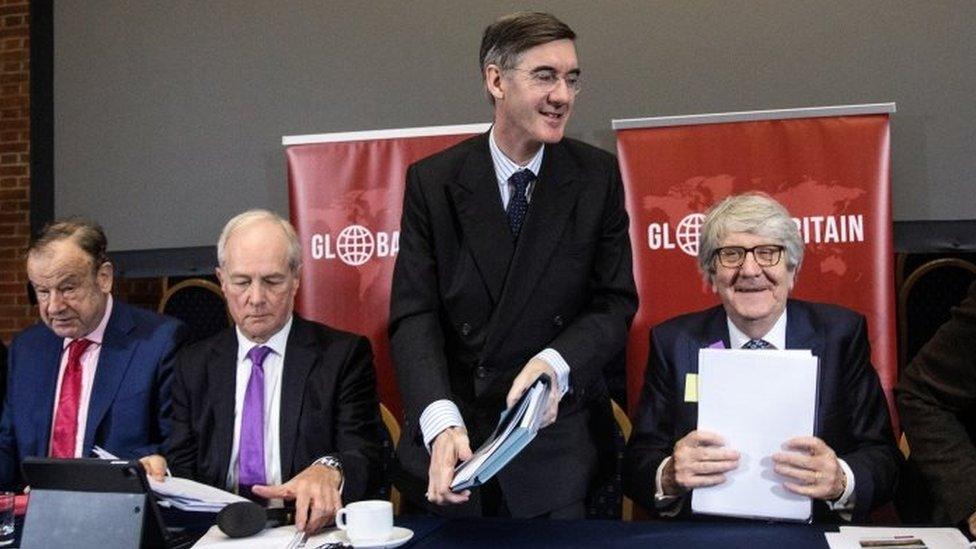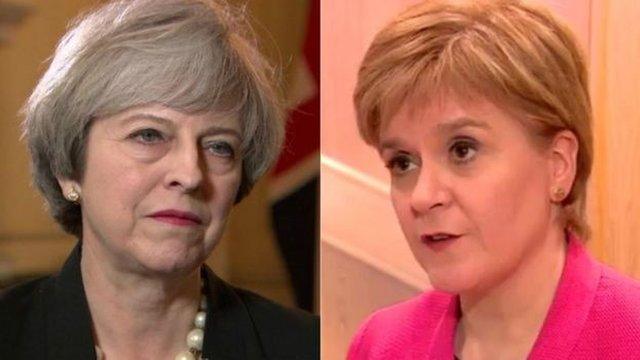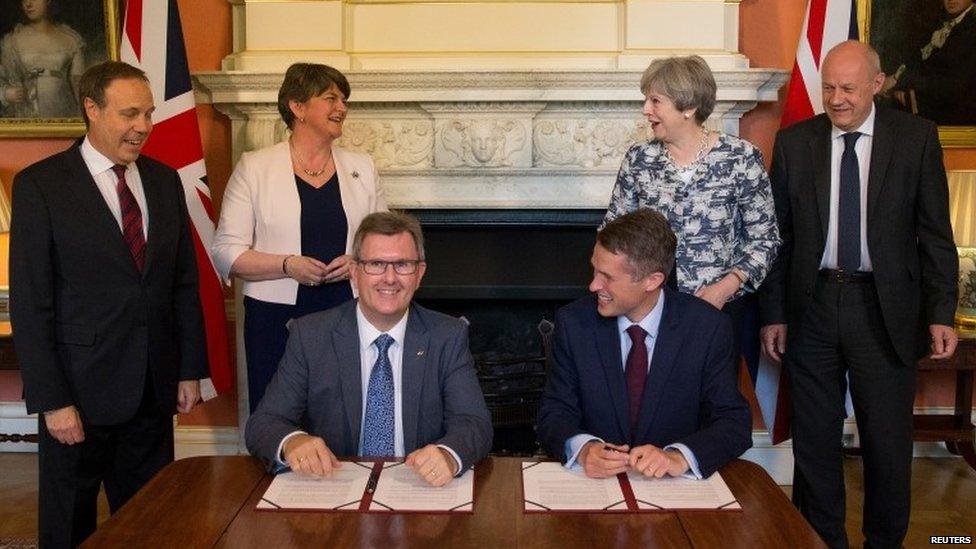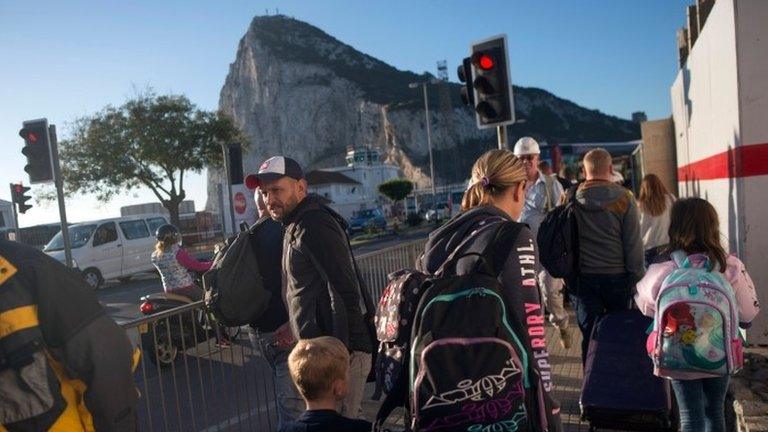Ditch May now or she will lead us into 2022 election, Rees-Mogg tells Tories
- Published
- comments

Jacob Rees-Mogg has warned fellow Tory MPs that if they don't ditch Theresa May now she will lead them into the next election, scheduled for 2022.
Few Tories thought this was a "good idea", the Brexiteer MP suggested.
Mr Rees-Mogg wants to oust the PM over her EU withdrawal agreement but has so far failed to get enough colleagues to back his call for a no confidence vote.
Meanwhile, ministers have had to accept Labour amendments to the Finance Bill after the DUP withdrew its backing.
Labour said the government was "falling apart in front of us" after ministers accepted a series of technical changes to the bill to pass the Budget.
They were made after it became clear the Democratic Unionists, on whom Theresa May relies for her Commons majority, again said they would not support the Tories.
Mr Rees-Mogg said he had not given up hope of getting the 48 letters of no confidence in the PM needed to trigger a vote.
"What we are seeing from this government is a deliberate decision not to deliver a proper Brexit," he told reporters at a Westminster news conference.
"We have a government led by Remainers who want to keep us tied into the EU as tightly as possible."
He said the 48 letter threshold might be reached next month when MPs get a "meaningful vote" on the withdrawal agreement.
But he added: "I think (the time) is now, or the prime minister will lead the Conservatives into the next election.
Mrs May's allies insist she would win a no confidence vote and under Conservative rules she would then be immune from a challenge for 12 months.
The PM says her Brexit deal is the best the UK can get from Brussels and it will allow the country to take back control of its "money, laws and borders".
Sammy Wilson, DUP: "The government had broken one of the fundamental agreements they had with us... we had to do something."
In other developments:
Downing Street said at a meeting of the cabinet earlier, the first since a spate of Brexit resignations last week, ministers had discussed possible alternative arrangements to keep the border open, that could involve "technological solutions".
In a sign of tension on the EU side, Spain has said it will not agree to the draft Brexit withdrawal deal without clarity over how talks on the future status of Gibraltar should be handled.
Ministers from the remaining 27 EU countries met in Brussels to work on the political declaration setting out their future relationship with the UK.
What will become of the Irish border when the UK leaves the European Union?
Downing Street said that, during talks with Scotland's First Minister Nicola Sturgeon, the PM had emphasised that the draft Brexit terms would give Scottish businesses the "clarity and certainty they need to protect jobs and living standards and see us take back control of our waters".
The SNP leader also met Labour leader Jeremy Corbyn earlier to discuss tactics ahead of the Commons vote.
In full: Nicola Sturgeon interview with Laura Kuenssberg on Brexit
Ms Sturgeon held a separate meeting with Lib Dem leader Sir Vince Cable, Green MP Caroline Lucas and Plaid Cymru's Westminster leader Liz Roberts, who all back another EU referendum.
She told the BBC's Laura Kuenssberg she wanted to form a "coalition of opposition" to Mrs May's Brexit plans, and that momentum for another referendum was growing.
She described her talks with Mr Corbyn as "exploratory" and said she did not know whether he would back a referendum.
But she said they both agreed that the PM's Brexit deal is a bad one and that no-deal should not be the only alternative presented to MPs.
Confused by Brexit jargon? Reality Check unpacks the basics.
A Labour spokesman said: "They discussed their common opposition to Theresa May's botched Brexit deal and determination to work across Parliament to prevent a disastrous no-deal outcome."
As it stands, there appears to be a majority in Parliament against the deal.
And Mrs May is coming under growing pressure from the DUP, whose 10 MPs keep her government in power.
Theresa May tells Laura Kuenssberg: "Don't just listen to the politicians."
The DUP abstained in Monday night's Budget votes as a warning shot over what they say are her broken promises on Brexit.
After the DUP indicated they would abstain again on further votes on Tuesday, ministers accepted Labour and SNP amendments in order to avoid likely defeat.
These will require the government to conduct a review into the public health impact of gaming, a report into the impact of Brexit on international tax enforcement and a review into the impact of tax avoidance measures on income inequality and child poverty.
Under the terms of their House of Commons deal, agreed after Mrs May lost her Commons majority in last year's general election, the DUP is supposed to back the government on Budget matters and on confidence votes.
Shadow chancellor John McDonnell said their refusal to do so now was "absolutely staggering", adding that the Conservatives were "in office but not in power".
- Published20 November 2018

- Published20 November 2018

- Published20 November 2018

- Published16 October 2019
